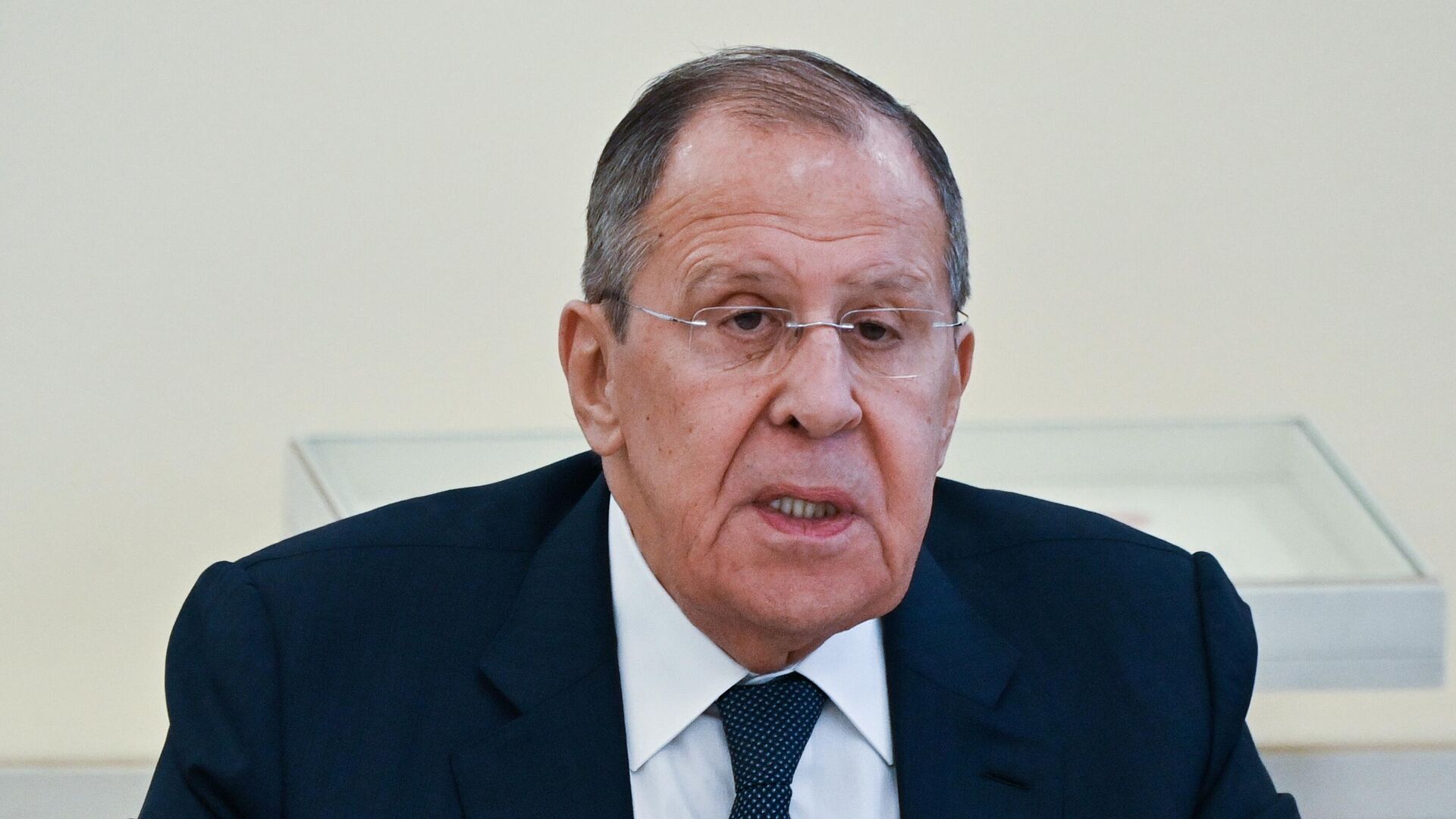
Moscow - Saba:
Russian Foreign Minister Sergey Lavrov stated on Wednesday that the Kiev regime does not represent the people of Crimea and Southeast Asia. Ukraine.
Speaking at the 13th International Meeting of High Representatives on Security Issues, Lavrov said, according to Sputnik: "Does the Kiev regime, which waged war against its own people after the February 2014 coup, represent the people of Crimea, and did it represent Crimea and southeastern Ukraine after the coup? Of course not. As happened in the 1960s, the colonial powers in London, Paris, Madrid, Lisbon, Berlin, and Brussels could in no way represent the interests of the peoples of Africa, who wanted to live under governments they elected themselves, not governments imposed from abroad." The same thing happened after the coup in vast areas of the former Soviet Republic of Ukraine.
Lavrov added that the West's emphasis on the principle of territorial integrity in the Ukrainian issue is unacceptable, completely disregarding the right of peoples to self-determination. He continued, saying:
"We consider the West's emphasis on the principle of territorial integrity (in the Ukrainian issue) to be completely unacceptable, imposed by the West and the heads of the UN Secretariat and other international bodies, completely disregarding the right of peoples to self-determination."
Lavrov emphasized that Ukraine's return to its neutral, non-aligned, and nuclear-weapon-free status is one of Russia's conditions for resolving the conflict.
He added, "Regarding NATO membership, let me remind you that Ukraine's status as a neutral, non-aligned, and non-nuclear-weapon state was formally proclaimed in the country's Declaration of Independence, adopted in 1991. This commitment—the declaration of Ukraine's status as a neutral, non-aligned, and non-nuclear-weapon state in perpetuity—is what enabled Ukraine to be recognized as an independent state by the Russian Federation and all other members of the international community. The return to these sworn promises, which the Nazi regime sought to violate and even codified in its constitution, is one of Russia's key demands, which must be met within the framework of any settlement, as expected in April 2022, during the Istanbul talks."
Lavrov said it is sad that the West is content with responding to Moscow's just and legal retaliatory measures against Kyiv's terrorist attacks. He added:
"I would like to draw your attention in particular to the terrorist acts committed by the Kyiv regime, which, through its own apparatus, is involved in organizing the assassinations of Russian politicians, military personnel, journalists, and public figures. This regime openly announces its plans to continue the massive bombing of civilian targets and the civilian population in the Russian Federation. It is very sad that the West is content with responding to our legal and just retaliatory measures against the Kyiv regime's terrorist attacks, which I can confirm affect civilian targets."
He emphasized that Russia's retaliatory measures are limited to strikes against military targets and facilities used by the Ukrainian Armed Forces.
Lavrov indicated that a new round of talks between Russia and Ukraine will soon be announced. He added: "During these talks, held on May 16 in Istanbul, we insisted on the abolition of all these discriminatory laws, and we will continue this emphasis in the next round of direct talks, which we will announce very soon."
He added that Russia has long been ready to hold talks with Kyiv, but Ukraine has refused and has not been allowed to enter this process by its masters in Europe.
Lavrov noted that Moscow is following with concern the buildup of NATO forces along the contact line with Russia, saying: "We are following with concern the buildup of NATO forces along the contact line with Russia. Incidentally, this buildup has increased significantly after Sweden and Finland, which were previously neutral, joined the alliance, and it is not clear why they are dissatisfied with their neutral status."
Lavrov pointed out that the Western theory of the inevitability of a clash between the great powers does not stand up to reality, an example of which is the cooperation between Russia and China.
He recalled that the West constantly promotes the theory of the inevitability of competition, and even clash, between the great powers, but this theory does not stand up to reality. He emphasized that the stability of the global order depends largely on the West ceasing to impose its own agenda.
Regarding the Iranian issue, Lavrov emphasized that there is hope for reaching an agreement between the United States and Iran regarding the nuclear program, noting that the situation remains complex.
Regarding the situation in the Middle East, Lavrov stressed that it is not too late to take measures to de-escalate the situation between Palestine and Israel.
He said, "We believe today that it is not too late to take urgent measures to de-escalate the situation in the Palestinian-Israeli conflict zone and to intensify efforts to create conditions for resuming the negotiation process on all final status issues, with the aim of correcting the historical injustice that has prevented the establishment of an independent Palestinian state in accordance with UN resolutions."
Secretary of the Russian Security Council Sergei Shoigu and Russian Foreign Minister Sergei Lavrov are participating in the 13th International Meeting of High-Level Representatives Responsible for Security Issues in Moscow.
The 13th International Meeting of High-Level Representatives Responsible for Security Issues will be held from May 27 to 29, 2025, at the Russia National Center, chaired by Secretary of the Security Council of the Russian Federation Sergei Shoigu.
More than 129 delegations from 105 BRICS member states, the Shanghai Cooperation Organization, the Association of Southeast Asian Nations, the Commonwealth of Independent States, the League of Arab States, the African Union, the Collective Security Treaty Organization, and other international organizations have confirmed their participation in the forum.
The agenda of the Senior Representatives Meeting includes issues of international security cooperation, and will specifically discuss the formation of a new, more just and integrated architecture for equal and indivisible security that is compatible with modern realities.